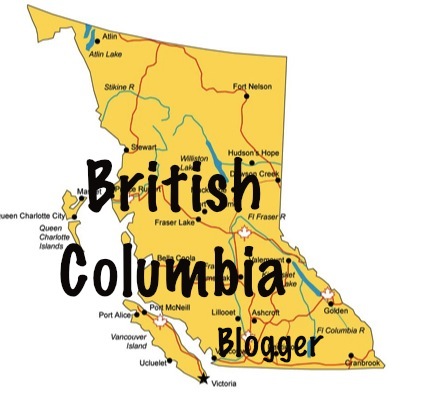However, one teacher structured it a bit differently. Before introducing the concept of Genius Hour to her class, she noticed that students really wanted the opportunity to become the teacher and teach the class themselves. And so, in order to be responsive to this authentic enthusiasm in her class, she introduced Genius Hour and asked them to prepare a lesson at the end. She told them they would all get to be teacher! This is what they had been begging for!
So, we introduced Genius Hour in the same way as the other classes (following these steps). But she added that at the end they would have the opportunity to teach something to the rest of the class as part of their project. Students in her grade 4/5 class were very excited about this presentation format. They were thrilled to plan lessons and teach their peers a new skill, some new information, etc.
So, why am I writing about this now? I was recently perusing an article by Parker Palmer and was struck again by one of his famous quotes, “good teaching cannot be reduced to technique; good teaching comes from the identity and integrity of the teacher”, and was reminded once again, how there cannot be one prescribed way to do Genius Hour. Like Denise Krebs and I state in our book, you have to make it your own and do what works for you. I love that this teacher was in tune with what her students wanted to do and made that connection to what she wanted to do–Genius Hour.
It was a win-win for everyone. And I was thrilled to be able to support the learning in her classroom-so a win for me too.
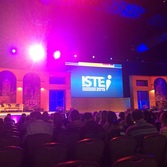
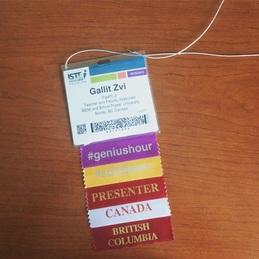
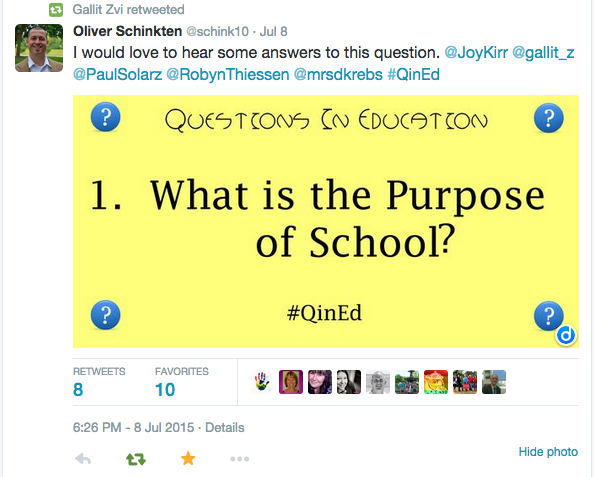

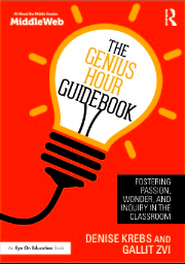
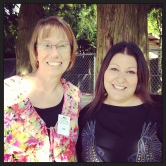
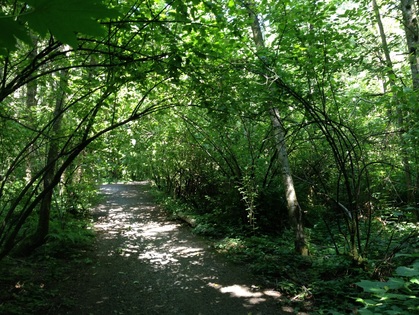
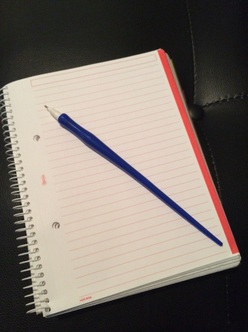
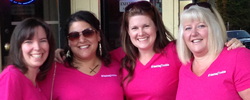
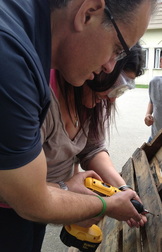
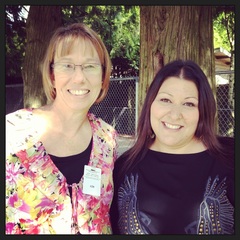
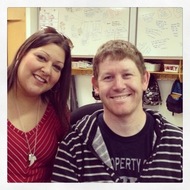




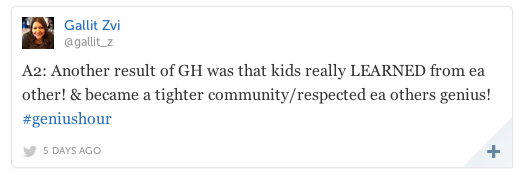
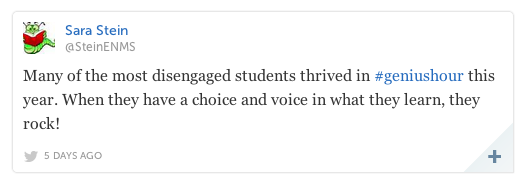

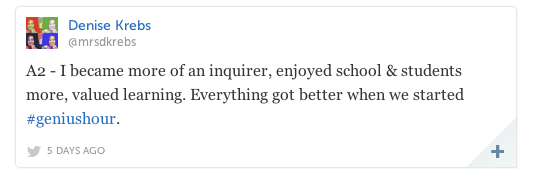
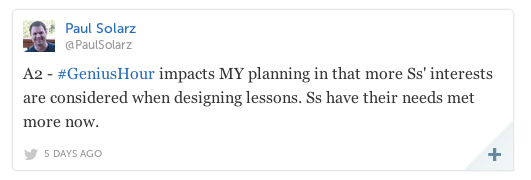



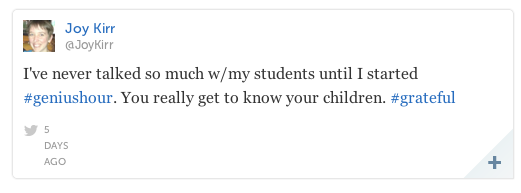
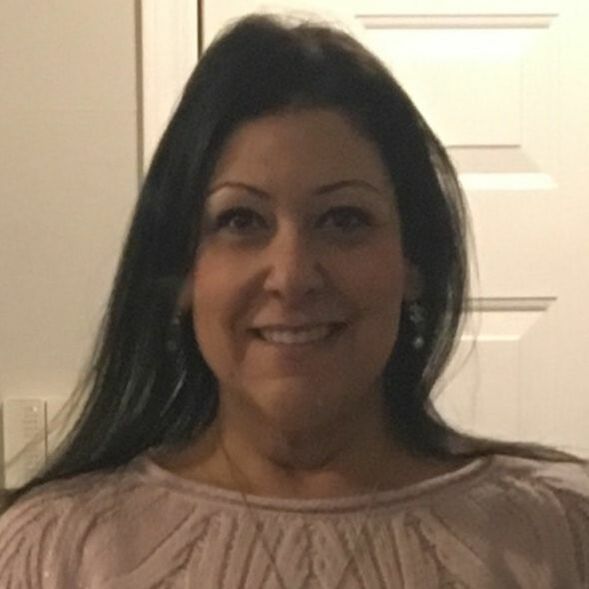
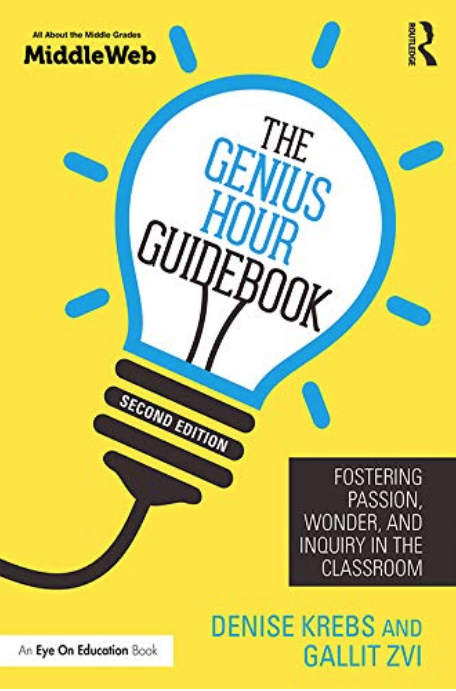
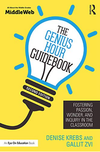
 RSS Feed
RSS Feed
